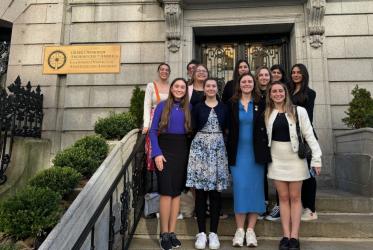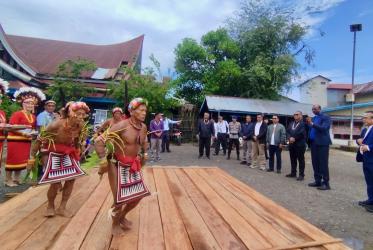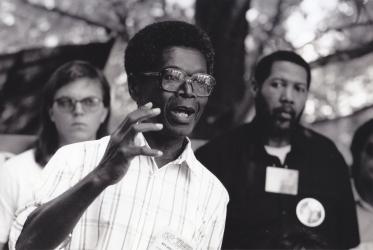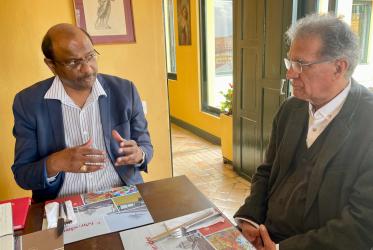Displaying 1 - 20 of 652
“Faith Perspectives on Reparations, Sustainable Development, and Economic Justice”
15 April 2024
Ecumenical Centre, 150 Route de Ferney, Geneva and online
Voice of churches vital during UN women’s rights talks
28 March 2024
On International Women’s Day, “we want us alive”
13 March 2024
As femicide cases rises, Kenyan religious leaders move to act
06 February 2024
WCC in Indonesia: Commitment, colours, and collaboration
05 February 2024
Week of Prayer for Christian Unity opens with array of resources
18 January 2024
WCC backs extension of ceasefire in Colombia
18 January 2024












